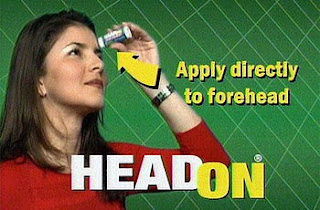This paper wound up being very different from the project I initially planned on putting together: much more about introverted people and the magical rhetoric of the internet, much less about anonymity and social activism. I hope that doesn't make it less effective than I planned on it to be. To connect to my topic, have some related media I found while researching. In the interest of making my final project as full and fleshed-out as I hoped it could be, I'll begin with a blog post on introversion, which, although key to my topic, occupies too much of my paper for how little accredited research exists.
Most of the testimonies and valuable opinions I found online came from people other that scientists, people who were busy living their lives as introverts running blogs, going to work, sharing their stories of frustration with their extroverted friends. One of my favorites, and one I would highly recommend reading if you have the time, is Carl King's 10 Myths About Introverts Blog. I found his blog enormously helpful in my research, although I am still debating about including it in the bulk of my paper, which otherwise contains exclusively scientific journals.
Similarly What Is An Introvert? seemed out of place in my essay. It was enormously helpful in crafting this essay and followed the pattern I had noticed in my own research: most introvert material came directly from the source: introvert users communicating and reaching out to one another through the internet. As I'm typing this, I have actually decided to go back to my paper and add a section regarding all of that information because it is simply too intimately tied to my final paper topic to leave out. You're probably laughing a little bit by now, but I'm still holding on to that old rhetorical rule: 1st person is a cardinal sin in a research paper. Silly me, thinking I could experiment like that.
Still, in an effort to continue incorporating elements of the internet (into my...God forbid...paper about the internet), I found two pieces I wanted to share with you and with whoever from class might read my blog in the future months. The first is the video that inspired this project. It got me thinking about introverted people, clearly using the internet as a tool for communicating and rallying together, explaining to other, introverted people that there was nothing wrong with them for not fitting into an extrovert world. I thought there was something enourmously beautiful about that...so I dedicated a research paper to it. Yep, English majors are real romantics, folks.
The second image was easily the most popular image response of Tumblr to the query "introvert" which I thought said something, particularly because it came with comments like "So true" and "my life." Also, a mellow and edearing look at what life is like for an introvert.
This next photo has nothing to do with introverts or the internet. I just thought it was thematically relevant to the problems we've discussed in class.
In closing, I sincerely hope you enjoy my paper and blog presentation. They have been fun to work on and the challenge of tackling a topic of my own choosing and one that I am close to and interested in has made a world of difference. Rhetoric and Communications has changed the way I approach writing and speaking as modes of communication and not nearly in the negative manner I feared early on in the class.













